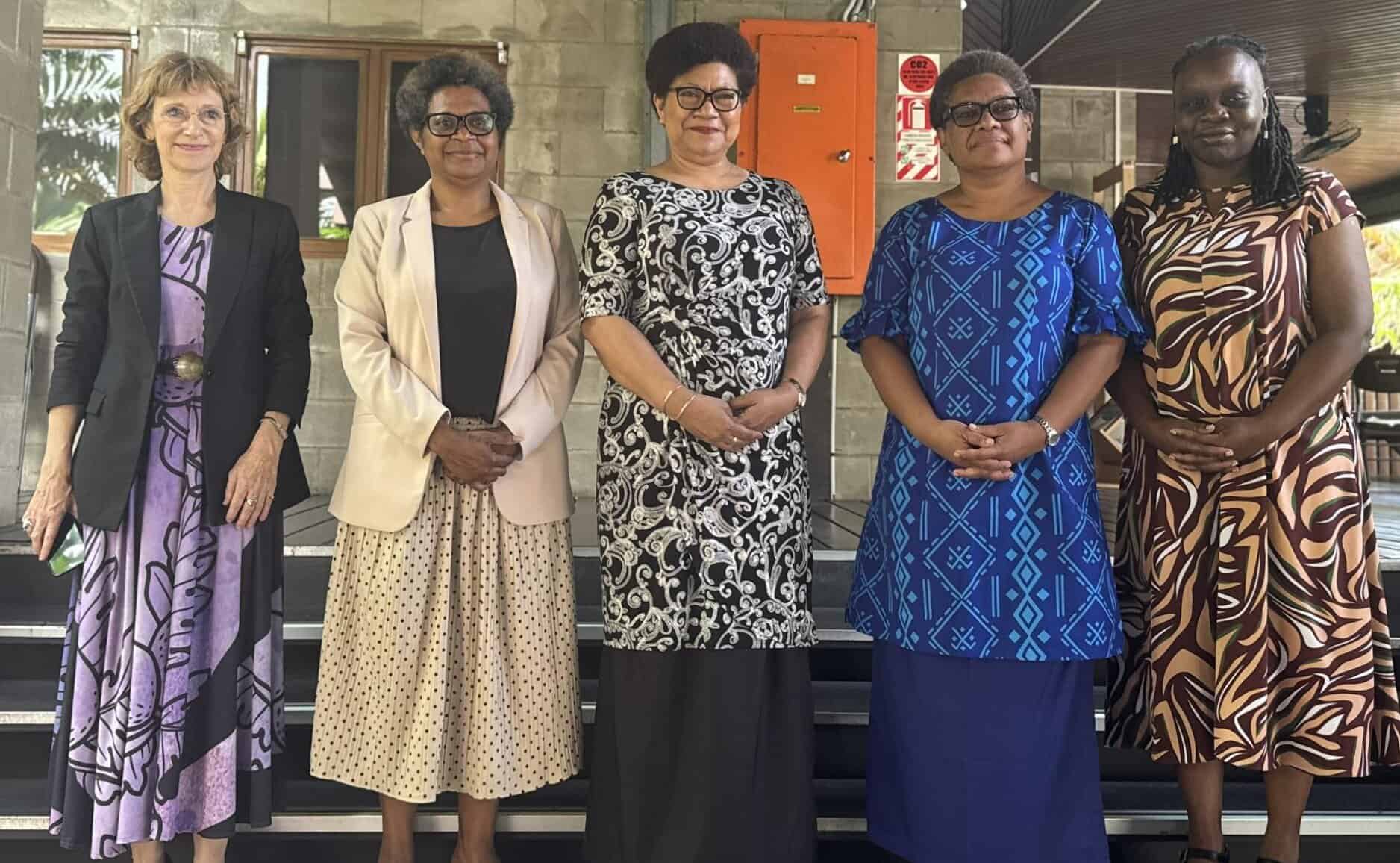“Achieving gender equality is not the business of governments alone. It is something that needs to be addressed by all sectors of our Pacific.”
Mereseini Rakuita, Principal and Strategic Lead for Pacific Women at the Pacific Community (SPC) made this statement at a briefing yesterday ahead of a meeting of the CEDAW Committee (Committee on the Elimination of Discrimination Against Women) in Suva next week .
The event, hosted by the Fijian Government, will bring the CEDAW Committee closer to the Pacific. Normally based in Geneva, next week’s schedule will include side events where Committee members can hear directly from the public.
CEDAW is an international treaty aimed at eliminating all forms of discrimination against women. Many Pacific Island countries have ratified CEDAW and changed their laws to support women’s rights. However, the full implementation of these commitments has been challenging due to cultural, logistical, and political obstacles.
Rakuita noted that the region’s distance from major global meetings, lack of resources, and low reporting rates have made it hard for Pacific nations to participate fully in global gender equality discussions. As Fiji’s former Minister for Women she has first-hand experience in the UN system. “The distance alone can be quite daunting for us as a region… sitting before a committee of experts from across the world, asking questions through their lived realities,” Rakuita explained. “This session will ensure that Pacific women’s voices are heard, their lived realities are acknowledged and that CEDAW’s recommendations are contextualised to our regional frameworks and priorities.”
A key issue next week will be the high levels of gender-based violence in the Pacific. “Two out of three Pacific women experience physical or sexual violence in their lifetime, double the global average,” Rakuita said.
Although there has been some progress, such as new laws and programs to improve women’s rights, there are still significant challenges. Women in the Pacific hold only 8% of parliamentary seats, which is the lowest globally. “These statistics… highlight the urgent need for sustained collective action,” Rakuita added.
A major goal of the event is to bring together governments, civil society, development partners, and academic institutions to discuss gender equality.
Rakuita hopes that bringing the CEDAW Committee to the region will allow for honest, direct conversations about how to apply international laws on gender equality in Pacific countries.
The event also allows countries that haven’t ratified CEDAW to engage with the process. Niue, Palau, and Tonga are yet to ratify the agreement, but will be attending as observers.
Fiona Hukula, Pacific Islands Forum Secretariat Policy Adviser and Gender Equality Director emphasised the importance of regional alignment with CEDAW in her remarks. “At the regional level, we have high-level political commitments that align directly with CEDAW,” Hukula said. “For example, the Gender Equality Declaration provides the framework for our leaders to address gender equality at the highest level.”
Hukula highlighted the significance of the revitalized pledge by Pacific leaders. “We went through a review process and consulted with our members to ensure this document reflects the Pacific’s current context, including issues like climate change, disaster resilience, and the impact of the COVID-19 pandemic.”
Rakuita concluded by saying, “Our main aim is to get our region to see how the CEDAW Committee works, to have one-on-one engagement with them, and to show them what our lived realities are like… so that when our member countries head to Geneva, they will be better prepared for what to expect and how to move forward in implementing international obligations.”
This event is a key opportunity for the Pacific region to strengthen its collective voice and act on the serious issues affecting women and girls, helping to create a future where gender equality is a reality for all.
